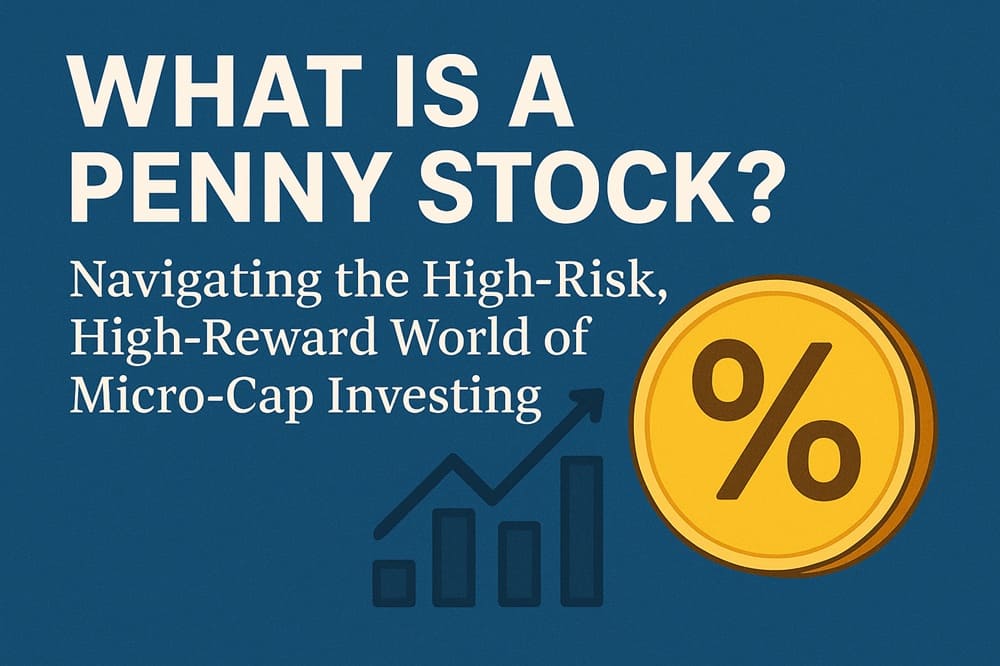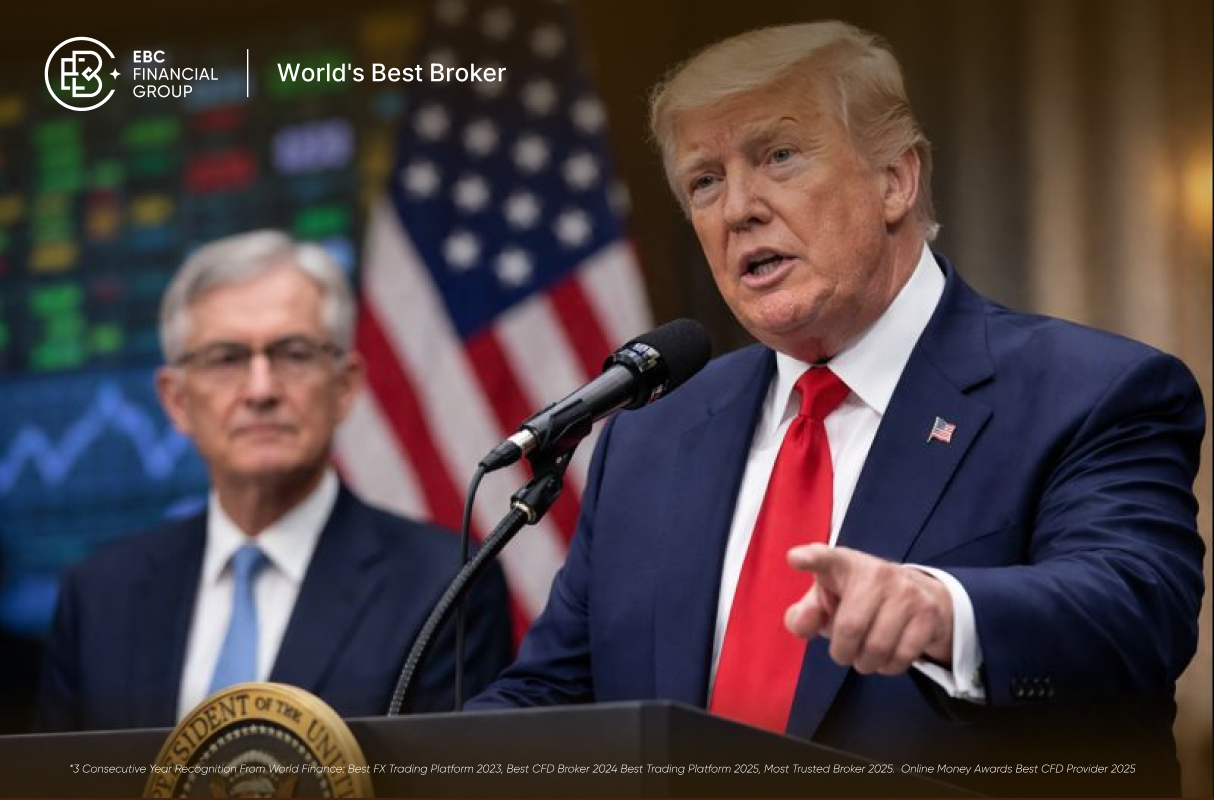A penny stock is a low-priced share, usually under £5. of a small public company.
They can offer high returns but carry significant risks, including volatility, low liquidity, and potential fraud. Investment is suitable only for those with high risk tolerance and thorough research.
This article provides a comprehensive overview of penny stocks, detailing their characteristics, associated risks and rewards, and strategies for informed and disciplined investment decisions.
Highlights
Penny stocks are low-priced shares, typically under £5. issued by small public companies with limited market capitalisation.
They can deliver high returns but are highly volatile, with prices often experiencing rapid and large swings.
Investing in penny stocks carries risks such as low liquidity, limited financial transparency, and vulnerability to scams like "pump and dump" schemes.
Evaluating penny stocks requires careful research into company fundamentals, market trends, and trading volumes to make informed investment decisions.
Successful penny stock investing involves disciplined portfolio allocation, risk management, and understanding the regulations governing OTC and exchange-traded micro-cap stocks.
What Exactly Is a Penny Stock?

1) The Official Definition
Penny stocks are typically defined as shares of small public companies trading at a price of £5 or less per share.
While this definition is widely accepted, it's important to note that the term "penny stock" can vary in meaning depending on the country and regulatory body.
For instance, in the United States, the Securities and Exchange Commission (SEC) uses the term to refer to securities issued by small public companies that trade at less than $5 per share.
2) Global Variations
In other countries, the threshold for what constitutes a penny stock can differ.
For example, in the UK, stocks priced under £1 are often considered penny stocks. This variation underscores the importance of understanding local market definitions and regulations when considering penny stock investments.
Key Characteristics of Penny Stocks
1) Low Share Price
The most distinguishing feature of penny stocks is their low share price, typically under £5. This affordability can make them attractive to investors with limited capital. However, the low price often reflects the company's small market capitalization and limited financial resources.
2) Small Market Capitalization
Penny stocks are usually issued by companies with a market capitalization of less than £300 million. These small-cap companies often face challenges such as limited access to capital, operational inefficiencies, and higher susceptibility to market volatility.
3) Over-the-Counter Trading
Many penny stocks do not meet the listing requirements of major stock exchanges like the London Stock Exchange.
As a result, they often trade on over-the-counter (OTC) markets, which can have less stringent reporting requirements and lower liquidity. This can make it more difficult for investors to buy or sell shares at desired prices.
Risks of Investing in Penny Stocks
1) High Volatility
Penny stocks are known for their extreme price fluctuations. A stock that trades at £0.50 per share can swing by 20% or more in a single day, leading to significant gains or losses.
This volatility is often driven by speculative trading, news events, or market sentiment rather than fundamental business performance.
2) Limited Information
Companies issuing penny stocks often have limited financial resources, which can result in sparse or outdated public information.
This lack of transparency makes it challenging for investors to conduct thorough due diligence, increasing the risk of making uninformed investment decisions.
3) Susceptibility to Fraud
The low price and limited oversight of penny stocks make them attractive targets for fraudulent schemes, such as "pump and dump" operations.
In these schemes, the price of a stock is artificially inflated through misleading statements or promotional activities, only for insiders to sell off their holdings at the elevated prices, leaving other investors with worthless shares.
4) Liquidity Issues
Due to their limited trading volumes, penny stocks can be illiquid, meaning there may not be enough buyers or sellers to execute trades at desired prices. This lack of liquidity can make it difficult for investors to enter or exit positions without affecting the stock's price.
Potential Rewards of Penny Stocks

1) High Return Potential
Despite the risks, penny stocks have the potential to deliver substantial returns.
For instance, some penny stocks have experienced price increases of up to 250% over a 12-month period. However, such gains are rare and often come with significant risk.
2) Entry Point for Small Investors
The low price of penny stocks allows investors with limited capital to purchase a large number of shares. This can provide exposure to the stock market and the potential for gains without requiring a significant initial investment.
3) Opportunities for Speculative Traders
For experienced traders, penny stocks can offer opportunities for short-term gains through day trading or swing trading strategies.
These strategies involve capitalizing on short-term price movements, but they require a deep understanding of market trends and technical analysis.
Evaluating Penny Stocks: Key Considerations
1) Fundamental Analysis
Conducting fundamental analysis on penny stocks can be challenging due to limited financial information. However, investors should look for companies with strong management teams, viable business models, and potential for growth. Key financial metrics to consider include:
Debt Ratio: A high debt ratio may indicate financial instability.
Earnings Growth: Consistent earnings growth can signal a company's ability to generate profits.
Cash Flow: Positive cash flow is essential for sustaining operations and funding growth initiatives.
2) Technical Analysis
Technical analysis involves studying price charts and trading volumes to identify patterns and trends. Indicators such as the Relative Strength Index (RSI), Moving Averages, and Bollinger Bands can help traders assess market momentum and potential entry or exit points.
3) Market Sentiment
Investor sentiment can significantly impact the price of penny stocks. Monitoring social media platforms, financial news, and online forums can provide insights into public perception and potential market-moving events.
Regulatory Landscape and Market Dynamics

1) Regulatory Oversight
In the United States, the SEC and the Financial Industry Regulatory Authority (FINRA) regulate penny stocks to protect investors from fraud and manipulation.
These agencies enforce rules requiring brokers to provide specific disclosures and conduct suitability assessments before executing penny stock transactions.
2) Global Regulations
Regulations governing penny stocks vary by country. For example, in the UK, the Financial Conduct Authority (FCA) oversees the trading of penny stocks and enforces rules to ensure market integrity and protect investors.
It's essential for investors to understand the regulatory environment in their respective countries before trading penny stocks.
3) Exchange Requirements
Major stock exchanges, such as the London Stock Exchange, have listing requirements that companies must meet to be included.
These requirements often include minimum share prices, market capitalization thresholds, and financial reporting standards. Companies that fail to maintain these standards may be delisted, which can negatively impact the liquidity and value of their stocks.
What Exactly Is a Penny Stock and Should You Invest?
| Category |
Details |
Example / Notes |
| Definition |
Stocks trading at a low price, usually under $5 per share (US standard) |
OTC (over-the-counter) or small-cap exchanges |
| Market Type |
Often listed on OTC markets or smaller exchanges |
Pink Sheets, OTCQB, TSX Venture |
| Liquidity |
Usually low, can be volatile |
Harder to buy/sell large quantities without affecting price |
| Volatility |
High price fluctuations |
Can gain or lose 20–50% in a day |
| Investment Risk |
Very high |
Often speculative, prone to scams or pump-and-dump schemes |
| Potential Reward |
High potential gains |
Small investment could yield large percentage returns |
| Investor Profile |
Suitable for risk-tolerant traders |
Not recommended for conservative or long-term investors |
| Research Requirements |
High due diligence needed |
Look at financials, management, and news before investing |
| Regulation |
Less regulated than major exchanges |
OTC markets have lighter reporting requirements |
| Trading Strategy |
Short-term trading, speculative investing |
Scalping, momentum trading, swing trading |
| Pros |
Affordable, high upside potential, access to emerging companies |
Can diversify small amounts across many stocks |
| Cons |
High risk of loss, low transparency, low liquidity |
Can be manipulated, hard to exit positions |
Conclusion: Proceed with Caution
Penny stocks can offer enticing opportunities for high returns, but they come with significant risks. Investors should approach penny stocks with caution, conducting thorough research and considering their risk tolerance before investing.
Diversifying one's portfolio and consulting with financial advisors can help mitigate potential losses and enhance the likelihood of achieving investment goals.
Frequently Asked Questions
1. What makes a stock a penny stock?
A penny stock is typically defined as a share of a small public company trading for £5 or less per share. These stocks often have low market capitalizations and limited liquidity.
2. Are penny stocks a good investment?
Penny stocks can offer high return potential but come with substantial risks, including high volatility, limited information, and susceptibility to fraud. They are best suited for experienced investors with a high tolerance for risk.
3. How can I identify a promising penny stock?
Identifying a promising penny stock involves conducting thorough research, including fundamental and technical analysis, monitoring market sentiment, and assessing the company's financial health and growth prospects.
4. Can I lose all my money in penny stocks?
Yes, due to their high-risk nature, it's possible to lose your entire investment in penny stocks. It's crucial to invest only what you can afford to lose and to implement risk management strategies.
Disclaimer: This material is for general information purposes only and is not intended as (and should not be considered to be) financial, investment or other advice on which reliance should be placed. No opinion given in the material constitutes a recommendation by EBC or the author that any particular investment, security, transaction or investment strategy is suitable for any specific person.





























